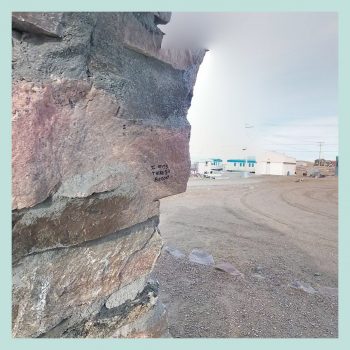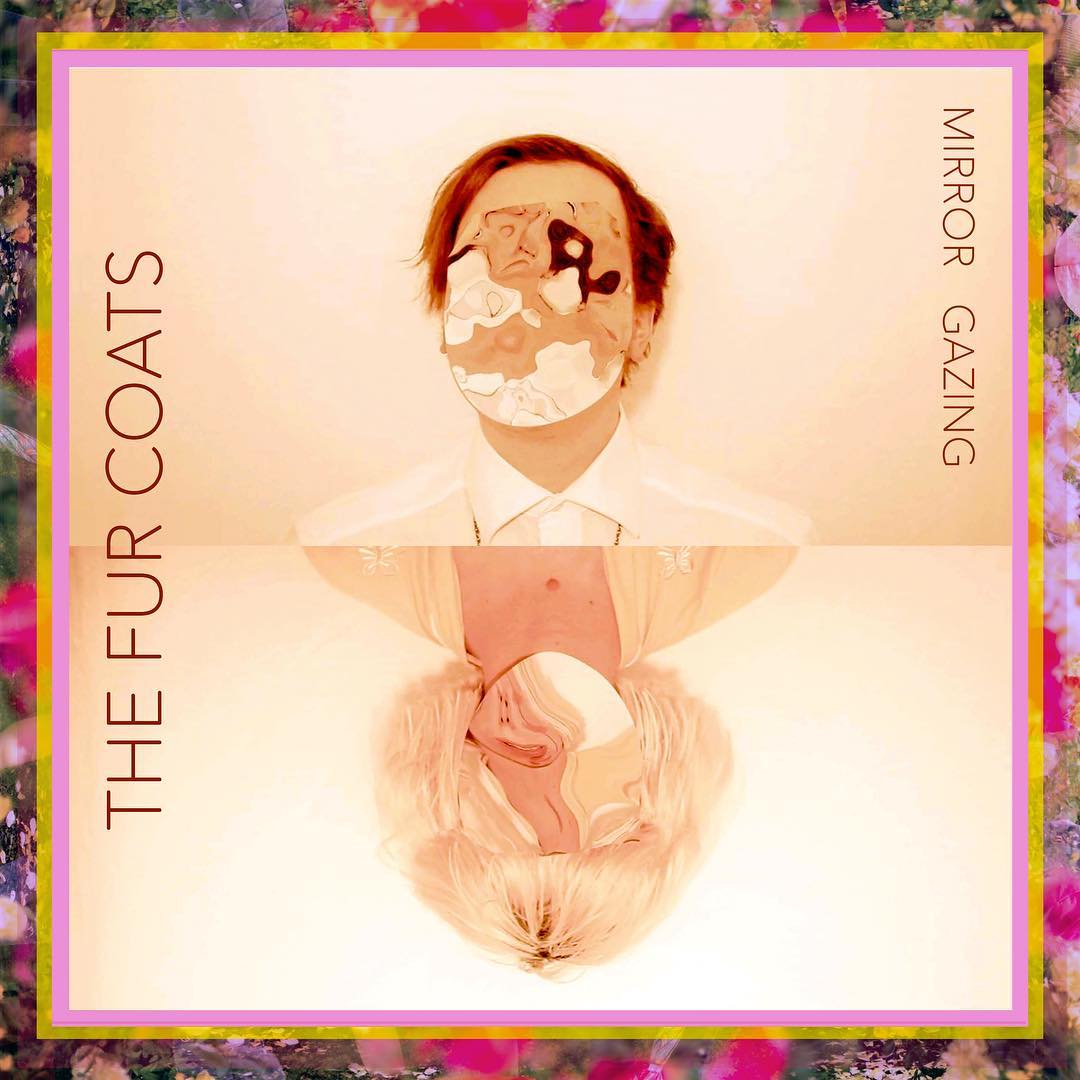Poignant, raw, and moving, Catch Prichard’s beautifully poetic and stirringly expressive debut ‘I Still Miss Theresa Benoit’ is an intimate and expansive record of the times.
Stream: “Woman” – Catch Prichard
Poignant, raw, and moving, Catch Prichard’s debut full-length album is an intimate and expansive record of the times. Cinematic and tender, beautifully poetic and stirringly expressive, I Still Miss Theresa Benoit is a slow-burning journey through past and present, individuality and community; a reckoning with the times, our perception of history, culture, progress, and more.
With Sawyer Gebauer’s deep baritone vocals leading our way through the dark, Catch Prichard light a bittersweet, yet hopeful spark we can carry with us into an endless array of tomorrows.

Independently released April 23, 2021, I Still Miss Theresa Benoit arrives this spring as Catch Prichard’s first full-length album – an elegant and emotionally sweeping nine-track collection ready to immerse listeners’ ears and hearts in wellspring of resonant feeling. The Oakland, California band of Gebauer, Travis Snyder (pedal steel), Chris Clayman (bass), and Tim Decillis (drums) recorded the LP at the top of last year, finishing their sessions just as the COVID-19 pandemic was locking the world down.
“My albums don’t usually take this long to release, but our final day of recording was the beginning of March 2020, when the world went into lockdown due to COVID-19,” Gebauer tells Atwood Magazine. “I remember eating at a pizza place with the guys after the last session and watching the news on the flatscreen of what was to come. Eerie thinking of it now.”
“I also did not know I had COVID while making this album. I wasn’t feeling right the whole week, couldn’t sing well, and was tired throughout the whole recording session. It wasn’t until the symptoms were more open to the public that I realized. Luckily no one else in the session got it! But I was feeling pretty shitty for about three weeks. We debated if I should re-record the vocals, but I felt that the album was a part of the time now, relevant, a piece of what everyone was going through. It’s a piece of history, and a product given by the means of the world.”

Previously featured on Atwood Magazine for their haunting 2016 single “Hometown” – taken off their debut EP, Eskota – Catch Prichard’s music is somewhat comparable to that of Manchester indie pop band The Slow Show, whose baritone vocalist Rob Goodwin captivates as much through booms and croons, as he does fleeting whispers and massive, drawn-out emotional overhauls. Such is also the case with Catch Prichard’s music, where Gebauer’s especially raw performance (we can “thank” COVID-19 for that) is bolstered by the seductive swells and soaring falls of a full band’s colorful, multi-textured might.
“I usually go into the studio with little idea of what I want it to be. I like to see what happens, see what flows through everyone in the moment, kind of a Miles Davis approach, but I think we set out to do exactly what we wanted to with this record,” Gebauer says. “John Cage said that coming out of a project with something exactly how you envisioned it produces something robotic, but we were able to avoid that with this album, I think. It’s common to run into problems while recording, whether sonically or economically. I guess COVID was the only bump in the road, and we made it through that too!”
“I still don’t think I have recorded an album that has captured my vision or artistry yet,” he adds. “That is quite amorphous. It is something I am still working on, searching for, learning about- even after 6 albums. Everyone that records music knows that by the end of a session, you’re pretty numb to the music. Even before the songs are brought into the studio you already spent so much time with it. Creating it, practicing it, performing it. I guess what I’m trying to say is that in the moment, yes, it feels like the true vision, but that changes. It evolves- and that is a good thing. I’m always looking to expand and head into new territory.”
https://www.youtube.com/watch?v=VATKDw5sGis
Though its songs range from intimate reflections to literary explorations, the album as a whole presents a melancholy look at life – though as every track somehow reminds us, mostly through musical expression, the sun will still rise and there shall come a brighter day.
The story behind the title, I Still Miss Theresa Benoit, is particularly sobering.
“Why is it that we can rarely trace our beginnings?” Gebauer asks when pressed about the album’s name. “Why is it difficult to grasp the origins of inspiration that influence our lives? There is an event, a thought, a dream, a circumstance that pulls on an idea and makes it tangible. In art, when a piece of work comes to fruition, its beginnings are often veiled. I remember reading Chekov one winter night in Oakland, California. Chekov had left Moscow by carriage and traveled across the notorious Russian terrain to an island north of Japan called Sakhalin, where he spent four years writing about his new world. Never having heard of Sakhalin, I hunted its history. Using Google Street View, I found myself driving down a main road, seeing the ominous, blurred faces of pedestrians walking by and the bleak Post-Soviet architecture of apartment buildings and store fronts. I “turned” a corner to be greeted by a smiling woman waving through her windshield. I was struck by the utter humanness of this gesture, like shouting at the top of a mountain to fight your echo, or intercepting a message shot into space in hopes that someone may hear it.”
“In this life, there will be more lost welcomes, messages, and warnings, shouting to be heard, to be seen, to be wanted and saved. In the mood to explore, I set out to find the most desolate place I could find. I “travelled” to an Arctic Circle fishing town called Naujaat. I tapped the screen and was dragged from one frame to the next, until something caught my eye. Written on a weather wrought brick, on the outskirts of a town where one thousand people struggle with poverty and temperatures that drop to eighteen below zero, I found naked heartbreak in a message, I MISS THERESA BENOIT. Once again, I was overwhelmed with how human, how palatable, how relatable these words were. We all have our Theresa, and in that moment, I heard someone’s cry.”

Mixing everything from folk to psychedelia, with spurts of country and Americana influence throughout (Gebauer’s first band was the folk group Brittsommar, a duo with Evelin Sillén that released two LPs and toured throughout Europe), Catch Prichard do their best to make every song its own immersive world. “The string arrangements on “Lipstick and Fur”, “Woman”, and “Reef of Dead Metaphors” are incredible,” Gebauer smiles, noting these as just some of his many highlights. “The trumpet work on “Lipstick and Fur” and “Worried Man” made the songs what they are.”
As a lyrically forward artist, Gebauer also cites some of his favorite lines from the album’s songs:
“I fixed the races cause I’m riddled with doubt. We changed the language and ripped the pages out.” – “Reef of Dead Metaphors”
“The best shows I ever played were the ones where no one ever came.” – “IamamI”
“Do you wake in the morning with a feeling you just can’t shake? You know your house ain’t haunted but you’re afraid anyway.” – “Worried Man”
https://www.youtube.com/watch?v=T-3Z7Ywpvjs
It is the harmonious blend of stirring lyricism and grand, yet still deeply intimate music that makes Catch Prichard’s full-length offering such an arresting and absorptive journey.
Gebauer just hopes folks come along for the ride.
“It’s hard to expect something from a listener, but what I know about Catch Prichard is that we make music that burns slow. It requires patience,” he shares. “The relationships that are the best, that last, that are remembered, are the ones that come on when least expected. This album is a relationship that is best when one spends time with it, nurtures it, gets to know it. Flings seem so pivotal because they’re intense, and burn out quickly. I don’t think this is so with this I Still Miss Theresa Benoit.”
Meanwhile, “what I’ve taken from this album is to keep going. Keep growing. Keep making music. Try harder. Stay on the path. It can only get better.”

Majestically melancholic and pensive, I Still Miss Theresa Benoit feels particularly prescient given the circumstances around its recording – when the world was just succumbing to a deadly pandemic – and now its release, as we are only just beginning to see a light at the end of this very dark chasm of a tunnel. The mesmerizing grace that sends us back into our own worlds on “A Reef of Dead Metaphors” perfectly captures a sensation of renewal and rejuvenation – of new beginnings blossoming from devastating ends. Parallels to real life aside, this cinematic wonder will be worth the listen no matter when you decide to press play – be it today, tomorrow, or ten years from now. No matter where we are in the world, loss, grief, pain, and hope will find us.
Experience the full record via our below stream, and peek inside Catch Prichard’s I Still Miss Theresa Benoit with Atwood Magazine as Sawyer Gebauer goes track-by-track through the music and lyrics of the band’s debut album!
I Still Miss Theresa Benoit is independently out now.
— —
:: stream/purchase I Still Miss Theresa Benoit here ::
Stream: ‘I Still Miss Theresa Benoit’ – Catch Prichard
:: Inside I Still Miss Theresa Benoit ::

— —
Cherry Bomb
Inspired from improvising with analog synths in Travis’ (pedal steel) San Francisco apartment, this tune takes us through in an internal, dreamy terrain. “Cherry Bomb” attempts to question our psychological origins. Are we truly individuals, or are we merely loose threads hanging from the ends of the torn sheet civilization has swaddled us in through thousands of years of civilization? Are our fears, dreams, love, aspirations our own? Or do we have society to thank (blame)? How much of these things are hereditary, passed down through generational experience and vicissitudes. Only the invisible things remain in this world, so perhaps that is why we are driven by them: myth, archetypes, stories, rituals and tradition. If these things are not our own, why do we continue to shake in the darkness and pull the mangled sheet of civilization to our chins, hoping for comfort and warmth?
IamamI
“IamamI” is about creative struggle and self doubt. It’s a reminder that above all things, we are everything, as well as nothing. This is a freeing paradox. “I’am birth, I’am death, hold it close to my chest.”
Commander
A meditative raga or dirg. Slow and arching with a build that finds us in climatic chaos. Tim does a great job with the drum solo while the band holds down this simple, yet lovely progression with repetitive, arpeggiated Rhodes, sweeping pedal steel, and grounding bass line. Love this track.
Lipstick and Fur
One of my favorite tracks on this record, I can say this is the only love song on the album. Although, perhaps I wouldn’t call it a love song. It is about the love you long to have, the love you wait patiently for as it lingers somewhere else except for in your arms. I was listening to a lot of Tengo and Afro Jazz from Cuba and Africa during this time, which you can notice with its descending progression in a minor key. While in front of my piano and the first chords emerged, I knew immediately there had to be a lush orchestral composition to bring this song into my true vision. Thanks to Ariel Wang and Lewis Patzner on strings, and Andrew Wilke on trumpet, these beautiful arrangements brought this song to life.
Woman
As a human race, we are innately goal oriented. We like to see things till the end, and when we don’t, there is a nagging feeling of loss and wonderment. We torment ourselves with the question of “what could have been?” “Woman” is about this, in the form of a relationship during a 24-hour period in L.A. During its aftermath, the narrator reflects on the conversations and events the two shared together.
“Woman” re-visits Catch’s country-folk roots with a sweet and lowdown acoustic guitar loosely wrapped in earthly bass and sweeping drums. The song slowly ascends as the pedal steel weaves between abundant string arrangements and a playful têt-à-têt with electric guitar. Once again, I can’t credit everyone on this track enough for bringing the powerful and beautiful presence to this song.
Lawless Land
Inspired by Graham Greene’s novel The Lawless Roads (a book written about his experiences in Central America and Mexico, material that would later be used for his arguably most famous novel The Power and the Glory), this song is light and full of humor. With lyrics like “look like a Victorian with religious doubts” and “going down to Mexico in a fine German car”, it’s hard not to let the images of travel spark one’s flickering wanderlust. Travel is but a motif in “Lawless Land”, though, and a symbol for life’s discontent. Instead of searching ourselves for a life we wish to live, we continuously let others guide us in directions that are not intuitive to our own path. We suffer because of this, always left to wonder if there is more to find. This song is about finding your journey.
Seatbelts
Another fun one for the album. A reggae/dub beat behind lyrics one may hear in a country tune: meeting a girl on a Texas street who is in love with the narrator, but unable to give her heart because of her Catholic morality, and the narrator, too, unwilling to change for the growing love between them. Neither is willing to sacrifice themselves, and so, the love dies before it has a chance.
Worried Man
“Worried Man” dovetails with generations of songs. I understand how this classical musical theme captures the familiar yet unconscious archetype that runs through every human. Whether Sage or Outlaw, the anxiety most of us feel is both perpetual and prehistoric, rooted in the belief that something savage is out there, hidden, powerful, waiting for our demise to feed its own survival. While untrue, the traitorous ghost lives.
I remember writing the lyrics to “Worried Man” quiet clearly. A song born during a period of my life that was more or less run by my invisible fears, a brawl with anxiety that I could neither name nor understand. We are narrative and fiction. We are self-creations – constructs of phrases we recite and morals we uphold that form who and what we call “ourselves”.
“Worried Man” is about this, and the trials and teachers of our fears that call us to see them for the shadowed tricksters they are – demanding us to remember who we truly are and always have been. When we realize these illusions as calls from the soul, we will understand their power as our own.
Reef of Dead Metaphors
A perfect song to wrap up the album. Ending like how it began: above our heads. I wanted this song to end with long, meditative strings arrangements that carry you away, like aboard a raft upon the wild Pacifc Ocean. That low, single cello note that sustains throughout the ending is stunning as it roots the strings like a hot air balloon to the earth. A beautiful song that I hope will encourage you to start the album from the top.
— —
:: stream/purchase I Still Miss Theresa Benoit here ::
— — — —

Connect to Catch Prichard on
Facebook, Web, Instagram
Discover new music on Atwood Magazine
? © Rochelle Arucan
:: Stream Catch Prichard ::








